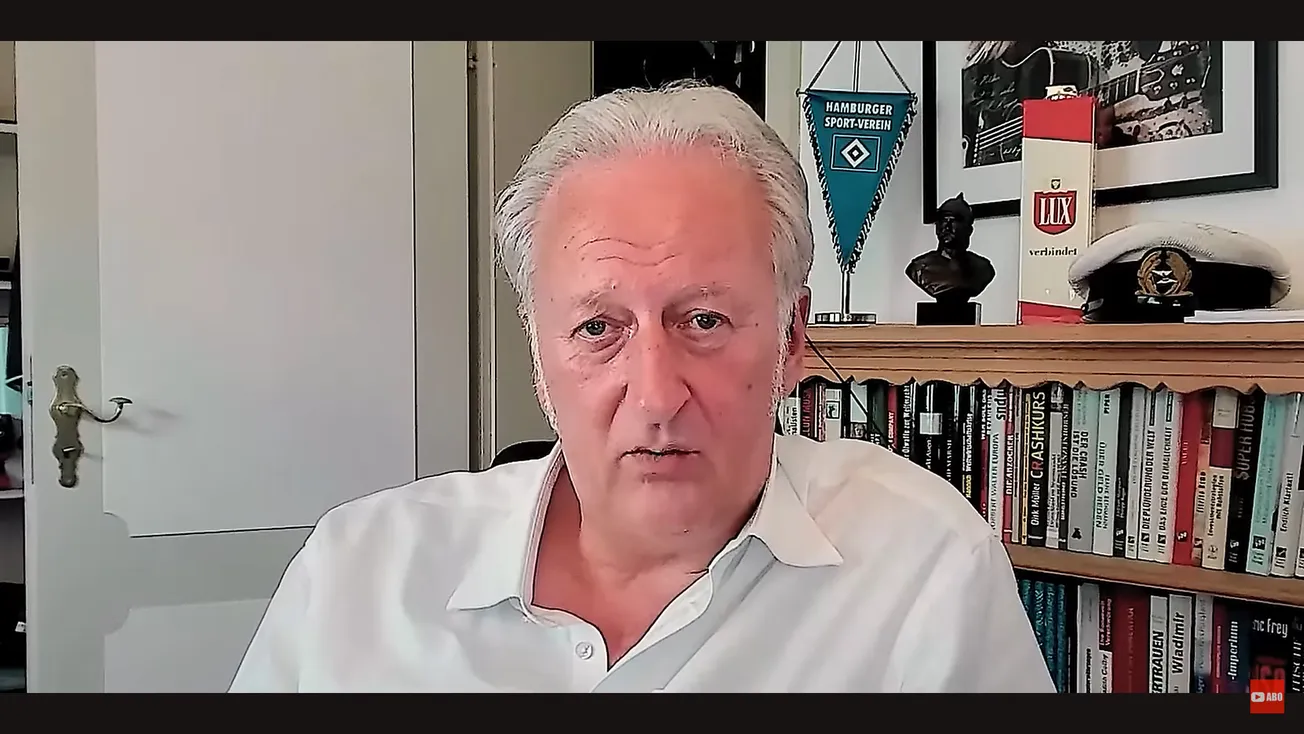German economist Folker Hellmeyer was particularly creative today in a video interview with the Kettner-Edelmetalle YouTube channel, which already had over 80,000 views. The following is from a machine translation.
“In the West, Putin is often portrayed as a loose cannon, an unpredictable partner full of aggression and murderousness,” Hellmeyer said. But “if we really assess him correctly, then I agree with Professor Jeffrey Sachs (Professor at Columbia University, who has worked for three Presidents in foreign policy and was sitting at a table with Yeltsin on the day the Soviet Union fell), Professor Mearsheimer, Scott Ritter; we all see it differently and, in my opinion, Moscow and this is now also to be seen in correlation with the Orbán-Putin visit in context, then they want a solution there that is the most peaceful against the background of what is possible.
“The policy that we are pursuing to some extent is irrational; we make only mistakes. The one thing in Brussels and in NATO and in our European government and also in the U.S. government and in the London government is the mistake that accompanies us: we have said we are sanctioning Russia into the Stone Age, we are isolating Russia like never before—the opposite is the case. And what do we do every time our plan doesn’t work? We continue to escalate on the military track, and I can only say one thing: this is the negation of the experience of the last century.”
Hellmeyer is angry at government leaders who have “no training, no experience, no ideas, but they want to decide everything.” Instead of “letting conflicts begin on February 22 , 2024, recognizing that they may have something to do with the year 1990, 1997, 2002 … even 2008, 2014 and understanding this context historically—something that Bismarck was able to do, by the way—in order to then make common sense politics and see that there are no white and black pictures, but that these are all shades of gray—and the shades of gray offer precisely the possibilities that we need. Shades of gray offer exactly the possibilities for a solution, and in this respect I very much welcome what Mr. Orbán is currently doing. We have to talk to each other in the end because we are paying for the damage economically at the moment. The Ukrainians are paying for it every day with a blood toll that is intolerable and that is also what it is about: we are humanists, so what solution is here that is appropriate and that also serves the real interests of the people on the ground.”
Orbán’s “exploratory talks for potential peace talks” are great, “because you can see that the box we’ve been moving in since February 2022, with sanctions and with bellicose measures and always further escalation, does not work; it only leads to more dying. So if my box does not work, it is intelligent to look at the box from the outside [and see that] we may have to change the box—that is exactly what Orbán delivers.”
Hellmeyer explained that the current pro-war mode which Germany has fallen into has been prepared for a long time, with a Constitutional change that “undermined the peacefulness that is written into our [Germany’s] Basic Law.” Since then, “we have had a changed Zeitgeist that has been driven by the media and politics that have brought us into the situation we are currently in.”
Hellmeyer said this makes him “infinitely sad, because we are a country that is familiar with the historical experience of the last century … and, in my opinion, we are repeating the mistakes that were made in the past. We used to be good at writing blank checks in favor of Austria-Hungary in 1914, which cost us dearly in the end. We should not issue blank checks, but when things change, it is the task of politics to react to them in a different way and not to hold on to things in unswerving loyalty (Nibelungentreue) for which one can be held liable afterwards.”
The interview is an hour long and Hellmeyer answers questions on the economy, trade and the U.S. elections.



